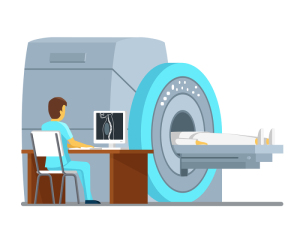by
Thomas Dworetzky, Contributing Reporter | January 12, 2017
In response to “reports of serious adverse events, including patient injury and death, associated with the use of implantable infusion pumps in the MR environment,” the FDA has issued guidelines for health care workers dealing with a patient with such a device.
For starters, the agency warned that MR should only be used in situations where the implanted pump is labeled as MR conditional. From there, the recommendations become more specific and are built on the notion that exact procedures differ depending on the specific implanted device.
Some of the problems that may occur include over-infusion or under-infusion, unintended bolus and other mechanical issues with the pump, according to the FDA Safety Communication.



Ad Statistics
Times Displayed: 2548
Times Visited: 12 Fast-moving cardiac structures have a big impact on imaging. Fujifilm’s SCENARIA View premium performance CT brings solutions to address motion in Coronary CTA while delivering unique dose saving and workflow increasing benefits.
For technologists, the FDA recommendations include:
- Be aware of and follow the policies and procedures at your site for patient screening prior to MR exposure. Be sure all patients are screened for implantable devices such as implantable infusion pumps.
- Don't do a scan before positively identifying the pump model and understanding the instructions for scanning when it is present. Before the MR, get the implant card from the patient if at all possible.
- Only pumps that are MR Conditional are safe for scanning – and only when its specific conditions are followed.
- Ensure your MR system meets all those conditions. “For example, some implantable pump models can be safely imaged only at 1.5 tesla (T), but not 3T.”
The agency advised radiologists to weigh the benefits and risks before ordering a scan.
For health care providers implanting these devices, the FDA offered another list of guidelines:
- Select the appropriate pump for each patient and make sure that the patient understands the MR risks of their device.
- Document the type of pump in the patient's record and makes sure the patient has the implant card.
- Ensure the pump is MR Conditional before ordering a scan.
- Stress to patients that they need to tell you if they are getting an MR from a different health care provider beforehand.
- Inform your patients that they should notify you before having an MR exam that another health care provider orders. MR exams may affect the function or programming of the implantable infusion pump.
When a patient with an implanted infusion pump is getting ready to undergo an MR exam, different models require different preparation and follow up.
For instance, some stop pumping during the scan, others require reprogramming before or after the MR, and some need to be purged of drugs, which could mean different drugs may be required to prevent withdrawal, noted the agency.
MR safety is a growing concern. Researchers reported that there has been an
almost 500 percent rise in adverse events from 2000 to 2009 with just a 114 percent increase in volume.

